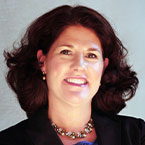Parents: Even if you haven't personally experienced gender diversity in your own family, your child is certain to have a friend or classmate who is gender diverse. This excerpt adapted from "You-ology: A Puberty Guide for Every Body," can help them understand what happens during
puberty for
their own body, and for everybody.
When you were born, one of the first things the doctor or midwife said was probably "It's a girl!" or "It's a boy!" Why did they say that?
They took one look at your genitals and made the announcement. If they said you were a boy, some people probably gave you blue baby clothes. People may have assumed you'd enjoy trucks more than dolls. If they said you were a girl, maybe people around you thought you would enjoy ballet more than baseball or pink more than blue.
So here's the thing: your private parts don't decide what you like to do, what you like to wear, or who you are on the inside. They have nothing to do with what sports you get to play, what friends you choose or what color shoes you wear. You get to determine all those for yourself!
Sex assigned at birth
When someone looks at a baby's genitals and says "It's a girl" or "It's a boy," that's called their sex assigned at birth because, well, it is assigned at birth. Make sense? If a baby is born with a penis, their sex assigned at birth is male. If a baby is born with a vulva, their sex assigned at birth is female. And some babies are born with genitals that aren't clearly either a penis and scrotum or a vulva. These babies are assigned a different sex at birth, called intersex.
Most babies who are born with a penis grow up feeling like a boy on the inside too. That's called being cisgender (cis- means "same"). This word describes people whose sex assigned at birth is the same as the gender they feel on the inside. Most people are cisgender.
But there are some babies born with a penis who grow up feeling like a girl on the inside. That's called being transgender (trans- means "cross" or "opposite"). Similarly, if a baby born with a vulva grows up feeling like a girl, she is a cisgender girl. If that baby grows up knowing he is a boy, then he is a transgender boy.
What is gender identity?
Sometimes it just takes time to figure out how you feel, and that's normal too. Knowing and feeling that you're a boy, a girl, a little bit of both, or not really either (no matter what genitals you have) is called your
gender identity.
It's OK if figuring out how you feel seems a little confusing. If you've never thought about this, you're probably cisgender and your genitals likely match how you feel on the inside. But some kids have confusing, frustrating, or sad thoughts about how their body doesn't feel quite right for them.
You can't help the way you feel, and there's no wrong or right way to be when it comes to gender identity. You are who you are, and that's what makes the world full of so many unique and interesting people. If you're not feeling OK about who you are, it's important to tell a doctor, a therapist, or another trusted adult who can help you.
Fun Fact
Transgender people have always existed. There are some records that go back 4,500 years that show that transgender people were a part of communities way back then!
Navigating puberty
It's no secret that your body has to go through changes during puberty so one day you can help make a baby if you choose to. That's how the human species continues. Going through puberty is also just part of becoming an adult, being able to do the important things adults do, and growing into the best version of you. These changes mean your body will grow bigger and your private parts will get an extreme makeover.
For some, the changes on the outside of their body during puberty don't fit with the way they feel on the inside. Or for some, the outside changes feel completely wrong. If you are a cisgender boy (born with a penis, feel like a boy), and suddenly, you start growing large breasts and you get a period, that would probably feel really wrong. Similarly, if you are a cisgender girl, and you start growing a mustache, getting a deep voice, and growing a penis, that would feel really wrong and might even make you feel panicked.
Embracing big feelings
In either case, you and your parents would definitely receive help from your doctor. For gender-diverse kids, such as transgender or nonbinary (not feeling like either a girl or a boy on the inside, or feeling like some of both) kids, the changes happening to their body can feel just plain wrong and can create these same big feelings. When their body changes don't match the gender they are on the inside, they may feel like their body is developing the wrong parts or their genitals don't match how they feel.
If someone experiences a lot of distress and worry because their body isn't matching their gender identity, it's called gender dysphoria (dis-FOR-ee-ah). For them, talking with a doctor is important too. But not all nonbinary or transgender kids experience gender dysphoria.
Some gender-diverse kids feel just fine about their body and how it's changing. They may not feel upset or distressed about the changes at all. What's most important is that everyone is supported in finding a way to feel good about their body and that everyone can express themself in a way that feels best for them.
Everybody is different
Just like kids with early or
precocious puberty, some transgender and nonbinary kids might be prescribed a medication to pause puberty. That lets them pause the changes until they work with their doctors, counselor, and family to figure out what is best for them.
Once they are a little older, they may choose to stop the blocker medicine, and puberty will continue. Other gender-diverse kids may choose to begin another medication that can help their body continue with puberty in the way that feels best for them.
For someone experiencing gender dysphoria, it's super-duper important to get help from a trusted and supportive team of doctors, counselors, and maybe even other people who have been through the same thing.
Whether or not they're taking medications to pause puberty, some gender-diverse kids feel better when keeping their body changes less noticeable. They may also wear clothing, hairstyles, accessories, or other gear to make their appearance match their gender identity better.
Some gender-diverse kids who are developing breasts may wear sports bras or binders (called binding) to compress their breasts so they aren't so noticeable. Some gender-diverse kids may not want others to see the front bump that their growing penis and scrotum make. To make it less obvious, they may wear compression shorts or tuck their penis and scrotum back between their legs, which some kids call tucking.
Although binding and tucking may make body parts less noticeable, they can be uncomfortable or harmful if done without care, so talking about them with a doctor who understands is important.
Remember
If you are having experiences in puberty that don't really feel right, we want to make sure you talk with a parent or another trusted adult because there are lots of ways they can help. Whether your puberty is early, is late, or just feels wrong, your doctor can guide you and your family. Doctors, nurses, and counselors in health care are eager to help you cope with big feelings and help you find a way to make puberty feel better and right for you.
When people understand that nobody can change the way they feel inside, and every single person is important and valuable, then the world is easier and better for EVERY body.
More information
About the authors
 Melisa Holmes, MD, FACOG, an ob-gyn, is Co-Founder and CEO of Girlology, a leading wellness app supporting girls and caregivers. In addition, she is Co-Founder of the Period Education Project, a national non-profit that trains medical students to deliver menstrual health education to under-resourced communities. Melisa Holmes, MD, FACOG, an ob-gyn, is Co-Founder and CEO of Girlology, a leading wellness app supporting girls and caregivers. In addition, she is Co-Founder of the Period Education Project, a national non-profit that trains medical students to deliver menstrual health education to under-resourced communities.
|
 Trish Hutchison, MD, FAAP, is a board-certified pediatrician and Co-Founder and CEO of Girlology, a leading wellness app supporting girls and caregivers. She is also Co-Founder of the Period Education Project, a national non-profit that trains medical students to deliver menstrual health education to under-resourced communities. Trish Hutchison, MD, FAAP, is a board-certified pediatrician and Co-Founder and CEO of Girlology, a leading wellness app supporting girls and caregivers. She is also Co-Founder of the Period Education Project, a national non-profit that trains medical students to deliver menstrual health education to under-resourced communities.
|
 Kathryn Lowe, MD, FAAP, is a licensed pediatrician and serves on the executive committee for the Section on LGBT Health and Wellness at the American Academy of Pediatrics. Kathryn Lowe, MD, FAAP, is a licensed pediatrician and serves on the executive committee for the Section on LGBT Health and Wellness at the American Academy of Pediatrics.
|